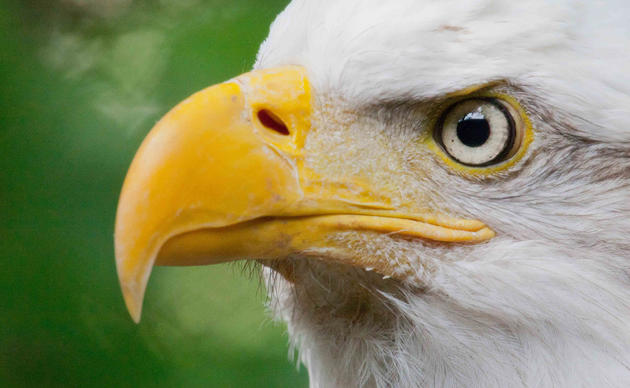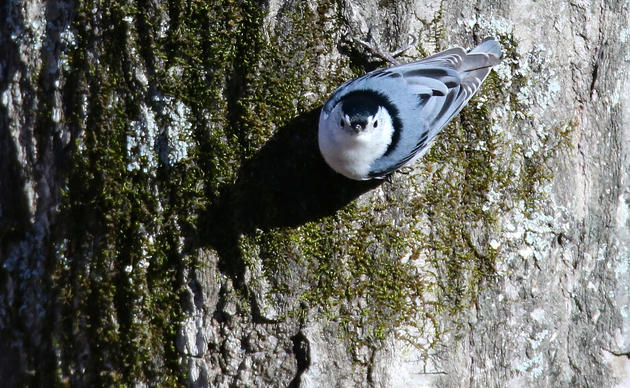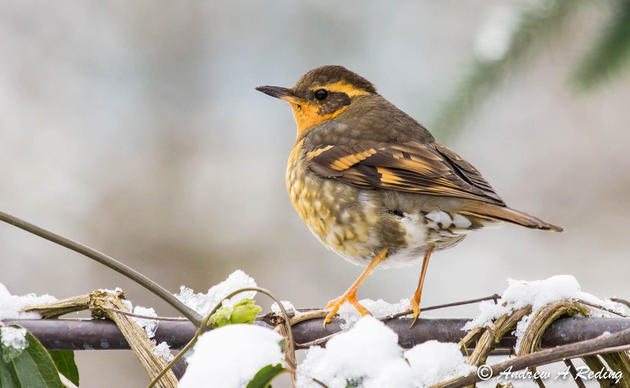With farmers and rural communities on the front lines of climate related events such as wildfire, flooding, drought, pests, and other harms to natural resources, and agriculture accounting for about seven percent of Washington’s greenhouse gas emissions, it is critical to invest in sustainable farming practices.
The Sustainable Farms and Fields bill (SB 5947) tackles carbon emissions in the state’s agricultural sector, creating a grant program to support efficient and effective carbon-reducing and sequestration practices aimed at increasing the quantity of carbon stored in the land.
Audubon Washington and Carbon Washington, along with the Tilth Alliance and the Washington Young Farmers Coalition, has made passage of this bill a top priority, conducting outreach and research to support the legislative process. In addition to the Washington Farm Bureau, other organizations that support the bill include the Washington Association of Wheat Growers, Washington Cattleman's Association, Northwest Farmers Union, Washington Farmer Veteran Coalition, WA Dairy Federation, Bale Breaker Brewing Company, Taylor Shellfish, and Wilcox Farms. A full list of more than 100 coalition supporters is available here.
Support for Sustainable Farms and Fields:
|
Tom Davis, Washington Farm Bureau "[This] represents a year-long discussion among a broad stakeholder group that, frankly, those conversations don't happen that often. And in this case, it's another shining example of what happens when you give reasonable people enough time to have a conversation about important issues." |
Jay Gordon, Washington Dairy Federation "Our dairy farmers are being asked by their customers to offer low-carbon milk, and there's some exciting technology to be able to work on that, and this bill holds innovative things like that. "Let's get started on some more work." |
|
Adam Maxwell, Audubon Washington “Policies that protect and enhance Washington’s farms, fields, forests, and coastal habitat are needed to slow the rate of global warming. With swift and comprehensive climate action, we can save the vast majority of vulnerable birds threatened by climate change.” |
Greg Rock, Carbon Washington "This bill...really is a testimony to how the legislative process works. You have to build consensus. You have to work with stakeholders. The more eyes you get on bills, the language gets better." |
|
Mo McBroom, The Nature Conservancy "The potential for sequestration, for working hand in hand with our agricultural community, with aquaculture, with our timber sector to be a part of the path to get to net zero, the potential is significant, and the benefits to real people and to rural communities are significant." |
Jake Stewart, Sweetwater Farm and Farmer Veteran Coalition "This represents the type of program that gets bipartisan reception. This is an incentive-based program that I think catalyzes innovation, innovation around best practices...and then best practices can be shared." |
About Sustainable Farms and Fields:
This bill builds on the state’s history of successful conservation grant programs like the Washington Wildlife and Recreation Program. It will help farmers access funding to voluntarily adopt more carbon-friendly practices, and it also has the potential to help some farmers become producers and suppliers of the clean fuels Washington needs to reach its emissions goals. Specifically, the program would fund work in three areas:
- Reducing carbon emissions generated throughout farming and ranch processes, including from fertilizers, pesticides, and fuels.
- Adoption of regenerative agricultural practices like no-till, cover-cropping, manure, compost, and biochar additions.
- Agroforestry, the addition of new trees and shrubs on agricultural and ranch settings that sequester carbon.
Washington’s farmland is an asset to its food system, its economy, and its environment that is worth investing in. By working collaboratively with farmers and ranchers to reduce greenhouse gas emissions from the agricultural sector, the state of Washington can grow rural economies, strengthen its farming economy, and take a meaningful step to address climate change.



